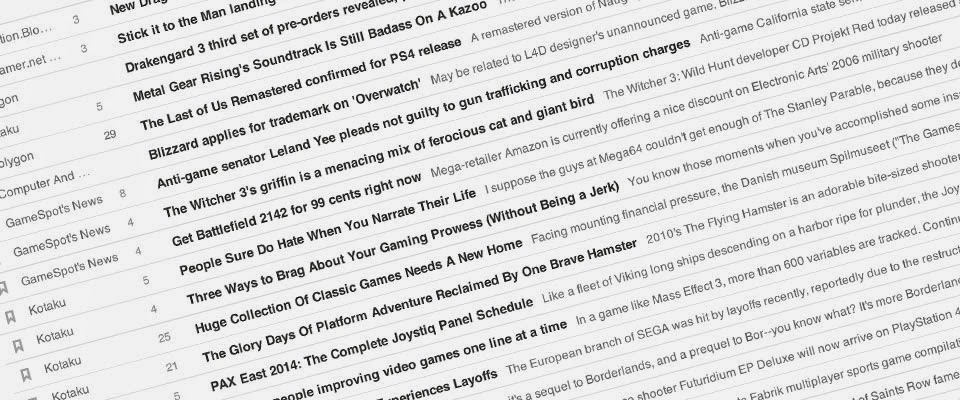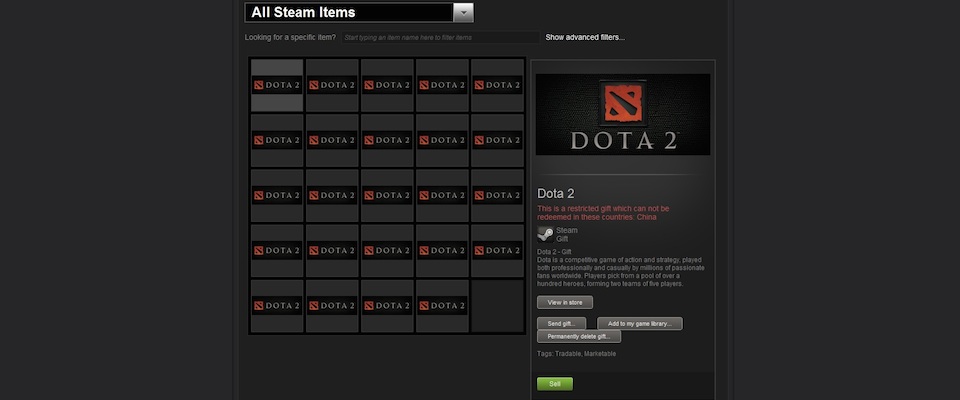Part two of a series written by Alex Bullock. The first part can be read here, and the third and final part will go live tomorrow.
Gaming has a funny habit of fragmenting its audience. In the first decade of home consoles and arcade cabinets, there were no target demographics. Lots of men played Space Invaders and Breakout, lots of women played Centipede and Pac-Man. Everyone played Pong.
That all changed in 1983. The American market crash bankrupted a number of companies and all but killed the fledgling medium. Two years later, Nintendo thought they had a way to reinvent it: their Nintendo Entertainment System would be sold as a children’s toy. In the 90s, as Sega and Sony clawed at their market share, the child friendliness became a weak point. The infamous Mega Drive magazine ads and PlayStation TV spots painted a new picture: our consoles aren’t just for kids, they’re for men.
The games media has been taking pointers. We’re all aware that more people play mobile games than on consoles or PCs, but visit the front page of an ostensibly multi-platform news site such as this one and you’d be hard pushed to guess. For the MOBAs and strategy games of eSports, a similar story is emerging. While a hundred million monthly active players seems an imminent milestone, the games media still clings to the hardcore. Nobody seems to care yet. Should we?
As mainstream websites reported on eSports with the same amazement the wider media exhibits now, specialist sites cropped up to better serve their niche audience. Now the likes of onGamers have monopolised the subculture, while the big networks scarcely cover it at all. A gulf has opened up between the traditional games media and the eSports one.
This is partly a problem of resources. In gaming, the monolithic media institutions we see elsewhere are few and far between. At a talk I attended two years ago, IGN UK’s then editor Keza McDonald had already highlighted the need for a new approach. They were looking for a dedicated eSports writer, because nobody on staff understood it.
It’s an uncomfortable and unusual rift. Even people who play games for a living have deadlines, and eSports confounds most of them. Much as mobile games fall outside their traditional remit, this is also a new world, and one which needs near-constant immersion to get to grips with. Journalists may be afraid of covering MOBAs and strategy titles because they simply don’t understand them.
For the independent outlets, the wider struggle to pay their writers persists. As LoLeSports and ggChronicle’s Matt Demers puts it, the split might be in the best interests of both parties.
“If you’re going to write something on the LCS [League Championship Series], you don’t do coverage for just one week. Most sites, even the bigger ones, don’t have the budget to cover even one game, and most sites would probably rather not only cover one [in detail].”
Dedicated writers may be beyond certain outlets, but then news isn’t all we visit those sites, or sites like this one, for. The games press is blessed with some excruciatingly talented essayists, people now moonlighting for the New Yorker and the Guardian. If we can’t get a variety of eSports news, then why aren’t we seeing more features?

Rich Stanton has written for the Guardian and New Statesman, as well as some of the most highly regarded games sites. He’s also a big fan of eSports. Yet when I speak to him on Twitter, he tells me publications just aren’t interested: “I’d love to cover eSports more. Truth is I get paid less for them than anything else I write.”
He contends that this is a problem of audience demand. Not everyone who plays a game wants coverage at all, and with the proliferation of sites, competition for readers is fierce.
“70 million LoL [League of Legends] players isn’t 70 million readers to any one site, y’know?
“I’m sure eSports coverage will become more common on mainstream sites over time. But I dunno if LoL is necessarily the game. It doesn’t work outside its audience.”
The reality is far from certain. When I suggest that League of Legends with its roleplay elements has perhaps the widest audience potential with both genders, he favourites the tweet. And Sterling has another, simpler idea: audience animosity.
“I get the sense most hardcore fans of it don’t even want [the] ‘mainstream’ media covering it. There’s very much a sense of ‘this is ours’ that I’ve noticed whenever a non-specialist place touches the subject.”

eSports is an exclusive club in the same way DotA 2 invites are hard to come by (if you’re unaware, have a look at the screenshot above to see how plentiful they are). Yet this tens of millions strong niche remains paradoxically parochial. There may well be a few comments below questioning the need to cover the games so casually.
It’s a problem that – let’s be honest – often extends to gamers as a whole. Decades defending their hobby have left many people bitter, and unwilling to respond to criticism. Now any probing coverage or uncomfortable questions, even if they come from the media and players themselves, is shot down unthinkingly: be that on eSports, gender representation, or increasingly graphic and realistic levels of violence.
It’s a climate which discourages greater engagement with the medium, in favour of a few favourable perspectives. There’s a huge potential audience, but the feeling is not just that they won’t be interested, but that articles might provoke outright hostility.
While Riot court wider audiences with their Game of Thrones adverts and Valve film documentaries, the community is in danger of walling itself off. If eSports are to progress, to be taken seriously, they need to be more open to outside criticism.
The dedicated sites are filling a gap in the market, and doing some sterling work. But as more difficult issues come to the fore, the latest news updates might not suffice. Both the wider media and developers would do well to help each other if the sport and industry are to be held to account.
Editor’s note: It’s the same story here at TSA in terms of coverage. This series of articles marks one of our first forays into eSports, and even then I’m learning a lot, and being surprised at how large the scale of the medium is. The majority of our editorial team don’t know enough about eSports for in-depth coverage, and even then, I’d be surprised if our target audience wanted more coverage. At the moment, it’s a tiny dot in our peripheral vision, with the new generation of consoles instead sitting firmly in view.
I think the real problem here is the complexity of it all. Mobile games are understandable, as they’re often just smaller, more portable versions of things we can understand, though even then they’re limited to a weekly feature on TSA. But MOBAs are a completely different ballpark, devoid of any of the delightful simplicity, and with far more complexity than most games on market. In fact, I’m not even sure if that’s true – but it’s definitely how they’re perceived.
We started off as a PlayStation site (hence the name) and didn’t cover other platforms for a few years, until we realised that we were limiting ourselves far too much. Should we do the same with eSports, and extend our coverage? Will it really limit us if we don’t cover this section of gaming? Only time will tell, but Alex’s words are already changing my own perspective.


bunimomike
Lovely article(s). My knowledge of it is simply through a few TSA folk who’ve watched many a LoL match. AG2297 and Nemesis (Phill over at OneHitPixel) being those particular viewers. It still feels very much like a secret but when you realise the extent it’s almost impossible to get your head around how huge it all is!
Redh3lix
Having participated in competitive gaming from a player and administrative duty to events in the past (FPS genre), I found a mixed bag of emotions from the community from my personal experience. Some wishing to see greater coverage and big money sponsorships (always requested from the elite players/teams), while others dislike the idea or simply do not care (players like you and me :P).
The introduction of money prizes alters the whole perspective of competitive gaming.